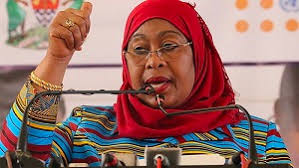Fitch Ratings: Nigeria’s northcentral Benue resurgence unveil Govs vision, reforms, bright economic future

Nigeria
Dooyum Naadzenga
The recent Fitch Ratings upgrade awarded to Nigeria’s northcentral Benue State marks a profound milestone that goes far beyond a mere adjustment of numbers on a financial ledger.
This achievement reflects a transformative journey led by the Governor of the State, Rev. Fr. Dr. Hyacinth Alia, whose visionary leadership and pragmatic policies have positioned the state on the cusp of lasting economic resilience and growth.
The elevation of Benue’s Long-Term Issuer Default Rating from ‘B-’ to ‘B’ and the improvement of its National Long-Term Rating from ‘A-(nga)’ to ‘A(nga)’ with a Stable Outlook symbolize renewed investor confidence and enhanced fiscal discipline.
Governor Alia’s leadership vision transcends traditional governance models; it embodies forward-thinking resilience, inclusive development, and diversification of the economy.
For Benue State, this rating upgrade is no isolated victory but the culmination of carefully crafted policies that have fortified fiscal health and created an environment conducive to sustainable growth. The numbers now signify much more than creditworthiness—they tell the story of a state emerging from historical financial uncertainty into a realm of stability and confidence that positions it to compete at both national and international levels.
The underpinning of this success lies substantially in the state’s improved fiscal performance, showcasing enhanced debt management strategies and meticulous oversight of federal allocations. Fitch Ratings explicitly recognized these elements as critical factors behind the upgrade.
Benue State’s leadership reversed what has been a common pattern across Nigerian states—reckless borrowing and poor financial administration—by instituting fiscal prudence and timely servicing of debts. This responsible approach has re-established Benue as a low-risk investment partner and a trustworthy custodian of its financial obligations.
Central to this financial turnaround is the efficient management of federal allocations, which represent a significant revenue stream for Nigerian states. Governor Alia’s administration has strengthened internal controls and introduced transparent mechanisms to ensure that every Naira received translates into meaningful development on the ground. The reduction of leakage and wastage has not only improved fiscal metrics but has nurtured increased public trust and confidence, a vital ingredient for the sustained acceptance and cooperation of Benue’s citizens.
Yet, this story extends well beyond numbers. At its heart are comprehensive strategic reforms and a renewed ethos of inclusive governance. The administration has deliberately invested in institutions that foster accountability, transparency, and collaboration.
With guidance from trusted voices such as Deputy Governor Barrister Sam Ode and experts like Dr. Raymond Asemakaha CFA of the Benue Investment and Property Company (BIPC), John Paul Terhemen Kpenkaan, the Executive Secretary of the newly established Benue Investment Promotion Agency, (BENIPA), Terwase Hembaor Gbande of the Benue Digital Infrastructure Company, (BDIC), Professor Qrissturberg Amua- Vice Chancellor of the newly established University of Agriculture, Science and Technology, (UAST), Ihugh and others, the reforms have transformed governance systems by promoting digitization, streamlining bureaucratic processes, and ensuring that stakeholders actively participate in policy formulation. This transformation has fueled improved budget implementation and enhanced service delivery, steadily elevating Benue’s standing both within Nigeria and on international platforms.
Economic diversification remains a cornerstone of Governor Alia’s strategy to secure Benue’s future amidst a rapidly evolving and unpredictable global economy. The state’s economy, historically anchored in agriculture, holds enormous untapped promise. Prior administrations stirred limited diversification efforts, but Governor Alia’s bold reforms breathe new life into the sector through modernization of agricultural practices, expansion of agro-processing value chains, and promotion of small and medium enterprises. These initiatives reduce Benue’s vulnerability to volatile revenue sources and foster sustainable growth potentials across multiple sectors.
In parallel, the government continues to invest in infrastructure, human capital development, and the adoption of innovative technologies, which together lay a solid foundation to nurture a competitive and vibrant economy. This multi-sectoral approach has been one of the factors that Fitch Ratings likely considered in issuing its upgrade, recognizing a state not only managing today’s challenges but building capacity for the future.
Beyond fiscal and economic fundamentals, the upgrade significantly impacts investor sentiment. A ‘B’ issuer rating paired with an ‘A(nga)’ national rating signals to investors a low credit risk with promising returns. Increasingly, Benue is viewed as a frontier for opportunity within Nigeria’s intricate economic landscape. The endorsements by globally credible organizations such as Fitch and local agencies like the BIPC amplify this perception and unlock vital capital infusion for infrastructural projects, job creation, and business expansions.
This new level of investor confidence derives from the administration’s persistent commitment to policy consistency and governance transparency. In a country where unpredictable policy shifts and corruption have often undermined economic prospects, Benue offers assurance that investments are shielded by stable, reliable governance frameworks. Consequently, local and foreign investors alike have begun to take notice of and embrace the Benue opportunity.
Benue’s breakthrough also offers lessons for other Nigerian states wrestling with fiscal challenges and developmental stagnation. Governor Alia’s tenure exemplifies how decisive leadership coupled with strong fiscal management and reforms can turn the tide for any state, regardless of its prior economic history. The upgrade defies the norm that only economically privileged states can achieve such recognition, underscoring that leadership quality and governance reforms matter immensely in driving economic recovery and growth.
However, the journey ahead remains challenging, calling for sustained commitment. Fitch’s upgrade raises the bar of expectations and imposes new responsibilities on government leaders. To maintain and build on these gains, it is essential that fiscal discipline is meticulously preserved and reforms deepened. From expanding economic diversification efforts to improving public-private partnerships, every initiative counts in transforming financial endorsement into palpable improvements in the daily lives of citizens.
Simultaneously, the state must continue investing in infrastructure and human capital to leverage fully the opportunities created by this improved standing. Harnessing sectors such as technology, renewable energy, and value-added agriculture will further shield the economy from future shocks and drive inclusive growth.
The role of collaborative governance cannot be overstated in this phase. Building strong alliances between government, private sector, and civil society is vital to sustaining the momentum and translating the upgrade into equitable, broad-based socio-economic development. By fostering an ecosystem where transparency and accountability are non-negotiable, Benue can attract more investments and utilize them efficiently for the benefit of all its people.
Ultimately, the Fitch Ratings upgrade is more than a commendation of Benue’s financial health—it is a powerful symbol of hope and a beacon that illuminates the transformative power of purposeful governance. Through Governor Alia’s stewardship, the state is rewriting its narrative, evolving from historical limitations to a future filled with promise and economic opportunity.
The Deputy Governor’s sentiments resonate deeply in this context, emphasizing that this is but a starting point—an affirmation encouraging all stakeholders to redouble their efforts as Benue embarks on a renewed journey toward prosperity. This narrative of resurgence holds relevance beyond Benue’s borders, offering an inspiring blueprint for governance and economic management that other sub-national governments can study, adapt, and emulate.
Benue’s story thus stands as a compelling testament to what is achievable when visionary leadership, rigorous fiscal policy, strategic diversification, and inclusive governance converge. The Fitch Ratings breakthrough is not an endpoint but rather a gateway to greater achievements, setting the stage for the state to emerge as a model of economic development within Nigeria and across Africa.
In the final analysis, this success represents a victory not only for Governor Alia and his team but for the people of Benue State, who now have a clearer pathway to improved livelihoods, enhanced infrastructure, and expanded opportunities. The future that lies ahead shines brighter because of the determined leadership that has delivered until now—and as Benue continues on this upward trajectory, it promises to be a beacon of progress for generations to come.









